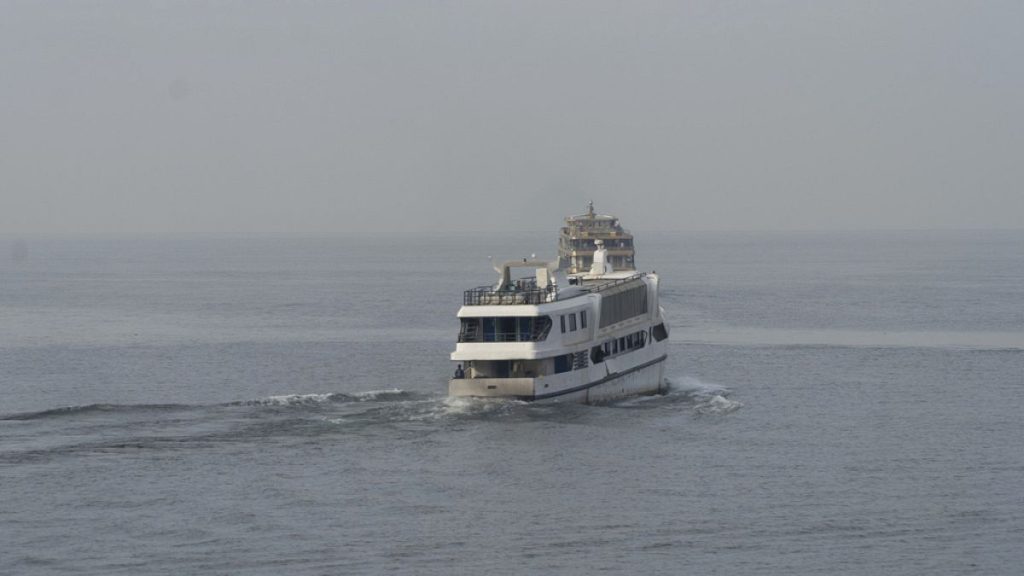The tragic sinking of an overloaded ferry on the Busira River in the Democratic Republic of Congo (DRC) has claimed the lives of at least 38 people, with over 100 still missing, casting a grim shadow over the Christmas season. The incident, which occurred late on Friday, is the latest in a string of deadly boat accidents plaguing the nation’s waterways, highlighting the precarious state of river transport and the urgent need for improved safety measures. The ferry, part of a convoy, was carrying primarily merchants returning home for the holidays, and had made multiple stops, leading to concerns that the actual death toll could be significantly higher. This disaster underscores the persistent issue of overcrowding on Congolese waterways, a problem fueled by the lack of affordable and accessible land-based transportation options.
The recurring nature of these tragedies exposes systemic failures in river safety regulations and enforcement. Despite official warnings against overloading and promises to penalize those violating safety guidelines, these incidents continue to occur with alarming frequency. The remote location of many communities makes reliance on river transport a necessity, but the scarcity of properly maintained vessels and the absence of essential safety equipment, such as flotation devices, create a recipe for disaster. The pressure to maximize profits often leads operators to overcrowd ferries, putting countless lives at risk. This latest incident has ignited public anger, with accusations directed at the government for its perceived inaction and failure to prevent such foreseeable catastrophes.
The deteriorating security situation in the DRC further exacerbates the risks associated with river travel. Ongoing conflicts between security forces and rebel groups frequently disrupt road access, pushing more people towards the already strained river transport system. Major routes are often blocked, leaving river transport as the only viable option for many. This increased reliance on overloaded and poorly maintained vessels creates a dangerous cycle where security concerns drive people towards even greater risks on the waterways. The choice between dangerous roads and equally dangerous rivers presents a dire dilemma for many Congolese citizens.
The incident on the Busira River comes just days after another boat capsized in the northeast, claiming 25 lives. This pattern of recurring tragedies underscores the urgent need for comprehensive reforms in the country’s river transport sector. These reforms must address the root causes of overcrowding, prioritize vessel maintenance and safety equipment, and strengthen enforcement of existing regulations. The government’s commitment to these reforms will be crucial in preventing future tragedies and protecting the lives of its citizens. The recent loss of life should serve as a wake-up call for immediate and decisive action.
The absence of flotation devices on the ill-fated ferry has sparked outrage and fueled criticism of the authorities responsible for overseeing river transport. Nesty Bonina, a local government official, condemned the government’s handling of recent sinkings, questioning how a vessel could navigate at night without proper oversight and questioning the adequacy of river service agents in ensuring safe passage. The apparent lack of basic safety measures underscores a systemic neglect of passenger safety and highlights the need for increased accountability and stricter enforcement of regulations. The repeated occurrence of these preventable tragedies demands a comprehensive review of current practices and a commitment to tangible improvements.
The Busira River tragedy shines a harsh light on the complex interplay of factors contributing to the persistent dangers of river transport in the DRC. Poverty, conflict, inadequate infrastructure, and weak regulatory oversight all play a role in creating an environment where such incidents are not only possible but tragically predictable. The recurring loss of life demands a concerted effort from the government, regulatory agencies, and the international community to address these underlying issues and implement solutions that prioritize the safety and well-being of those who rely on the country’s waterways. The families and communities affected by this latest tragedy deserve nothing less than a commitment to meaningful change that prevents future such heartbreaks.














